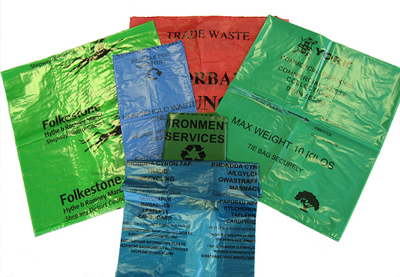South Lanarkshire Council has placed an order for 11.25 million compostable caddy liners with specialist waste management and recycling sack supplier Cromwell Polythene.

The seven-litre liners are to be used for the fortnightly collection of food waste, which the council introduced in Hamilton in May last year and which has since been extended to other parts of the region, including East Kilbride and Rutherglen/Cambuslang as part of a drive to improve its recycling rate and help meet the challenges and targets set by Scotland’s Zero Waste Plan.
To date, mixed garden and food waste collections have been provided to 80,000 houses across the whole of South Lanarkshire, where all compostable waste is placed in an outdoor bin. The region’s 25,000 flats are also part of the scheme, with residents placing their food waste in communal collection bins. All of the organic waste is treated by in vessel composting to produce high quality compost, used on South Lanarkshire’s own public spaces.
Nearly 4,000 tonnes of mixed food and garden waste was collected during the first full year of the council scheme, with tonnages expected to increase as the service is rolled out across the region.
The food caddy liners, for which Cromwell Polythene is the sole distributor among local authorities and the waste management sector in the UK, are manufactured from Ecopond® biodegradable resin. The bio-plastic uses starch or lactide-based derivatives of plant sources, fully compliant with the European composting standard, which requires more than 90 percent of the plastic mass to convert into biomass, CO2 and water, with no harmful residue.
Announcing the contract Cromwell’s managing director James Lee said: “Food waste schemes are a proven way of boosting tonnages and increasing recycling rates. Scottish councils are among the most enthusiastic food waste collectors, with some 56 percent of authorities operating separate food waste schemes and a further 19 percent where food is mixed with the garden waste, according to the latest WRAP statistics.”